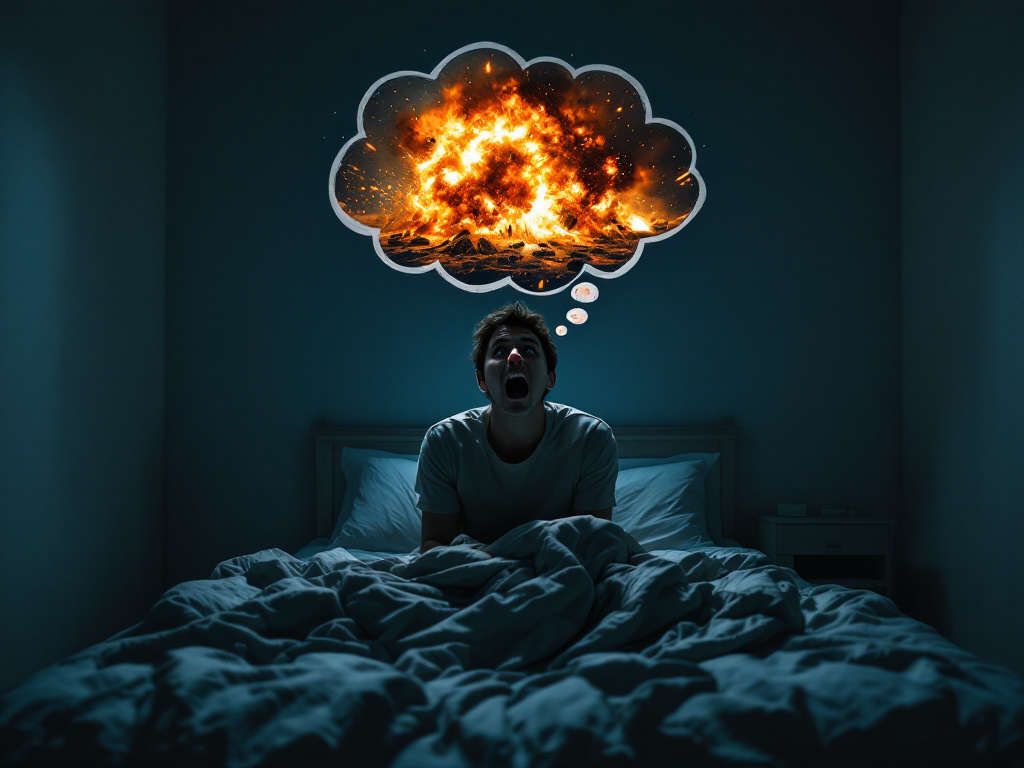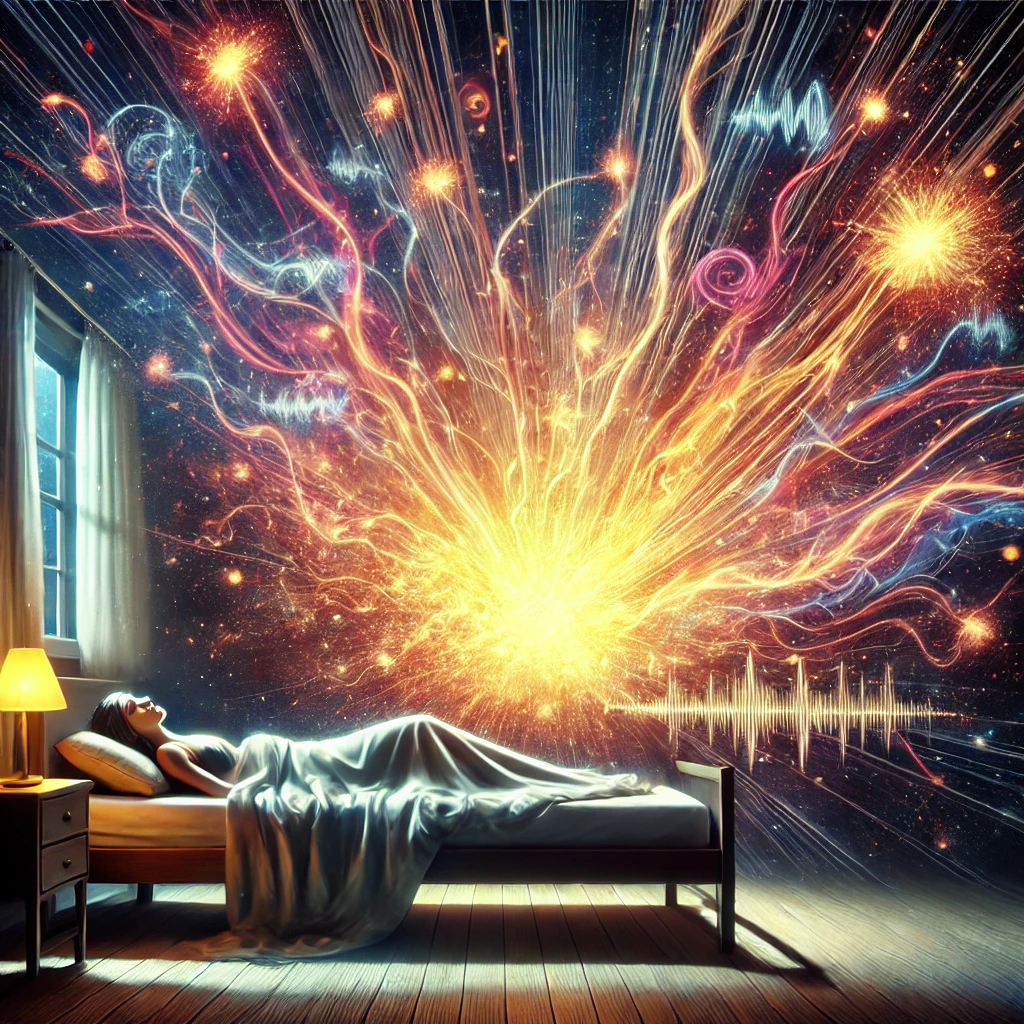A Disturbing and Unexplained Experience
Imagine being in bed, ready to fall asleep, when suddenly you hear a loud noise: an explosion, a gunshot, a sonic boom that startles you. You wake up abruptly, your heart racing, but something feels strange: the room is silent. No noise, no source of the explosion. It was all in your head. If you have ever experienced something like this, you may have encountered Exploding Head Syndrome.
What is Exploding Head Syndrome?
This sleep disorder, classified as a parasomnia, manifests as the perception of a sudden loud noise inside one's mind, with no external sound present. It can occur while falling asleep or waking up, causing fear and confusion. Despite its alarming name, this condition is harmless and does not cause physical harm.

Main Symptoms
Sudden perception of a very loud noise (explosion, gunshot, lightning crack, or a flash of light).
Sensation of fear, rapid heartbeat, and sometimes anxiety.
No physical pain or neurological signs after the episode.
It may occur occasionally or frequently.
Why Does It Feel So Real?
Those who experience Exploding Head Syndrome describe it as an extremely realistic event, often prompting them to check whether something has actually exploded in the room. This happens because the brain, during the transition between wakefulness and sleep, may generate abnormal electrical discharges, leading to these sudden auditory hallucinations.
Scientific Theories on the Causes
Although Exploding Head Syndrome is recognized, its exact causes remain unclear. However, some theories suggest that it may be due to:
Dysfunctions in the nervous system that regulate sleep.
Overactivity of the reticular formation, the brain area that manages the sleep-wake cycle.
Stress and anxiety, which can increase the frequency of episodes.
Sleep deprivation, which may make these events more likely.
Historical Accounts and Folklore
While Exploding Head Syndrome is now studied scientifically, in the past, it may have been interpreted differently. Some cultures attributed mysterious nighttime noises to omens, spirits, or paranormal phenomena. Could many historical reports of unexplained sounds be cases of this syndrome?
Can It Be Prevented or Treated?
There is no specific cure for Exploding Head Syndrome, but certain strategies can help reduce its occurrence:
Managing stress and anxiety with relaxation techniques.
Improving sleep quality with regular sleep schedules and a calm environment.
Avoiding caffeine and stimulants before bedtime.
Consulting a doctor if episodes become frequent or significantly disrupt sleep.
A Curious Yet Harmless Phenomenon
If you have ever heard a sudden explosion in your head while falling asleep, know that you are not alone: many people worldwide have experienced the same phenomenon. The good news is that, while frightening, this syndrome is benign and poses no health risks.
Have you ever experienced something similar? Share your experience in the comments!
Sources for Further Reading
Exploding Head Syndrome - StatPearls - NCBI Bookshelf (ncbi.nlm.nih.gov)
Exploding Head Syndrome - PubMed (pubmed.ncbi.nlm.nih.gov)
Exploding Head Syndrome: Causes, Symptoms & Treatment - Cleveland Clinic (my.clevelandclinic.org)
Two cases of exploding head syndrome documented by polysomnography - Journal of Clinical Sleep Medicine (jcsm.aasm.org)
Exploding Head Syndrome: A Case Series of Underdiagnosed Cases - Karger (karger.com)








Leave a Comment